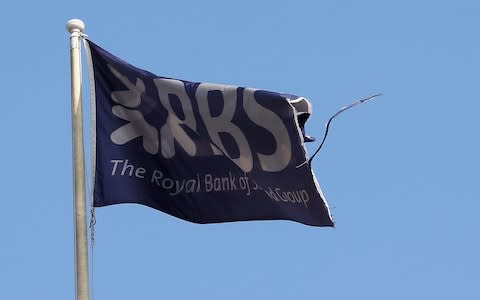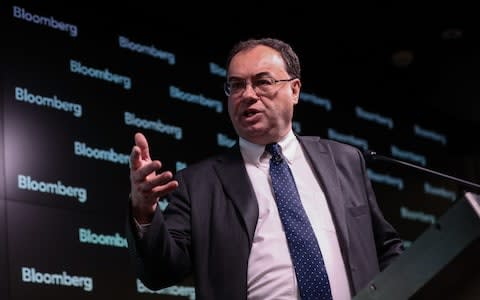Britain's small business banking scandal - what lessons will be learnt?

In an office block in the shadow of Melbourne’s gleaming skyscrapers a long-awaited public inquiry into Australia’s banking system kicked off last week.
After a string of scandals that rocked faith in the country’s financial institutions, Malcolm Turnbull, the nation’s prime minister, in November ordered a royal commission to investigate an array of misconduct claims.
A former high court justice began combing through hundreds of complaints made against lenders – from rigging markets to mistreating customers – to assess for systemic problems that needed fixing. To some in Britain this looks like a portent of things to come.
The UK’s own finance industry has been stung by a string of scandals, from rate rigging to mis-selling payment protection insurance (PPI), to criminal convictions for fraud. The latest furore surrounds a report into mistreatment of small businesses by taxpayer-controlled Royal Bank of Scotland.
This culminated with the financial regulator that commissioned it, the Financial Conduct Authority (FCA), refusing to publish it by a deadline set by MPs of Friday. The refusal has provoked ire. The FCA insists it would be breaking the law to publish it without the consent of former RBS bosses implicated in it – a process commonly known as “Maxwellisation”.

Yet it has been leaked widely and is readily available online. The Treasury select committee, led by Nicky Morgan, is expected to use parliamentary powers to publish it as early as this Tuesday. The document shows the full extent of abuse of power and “widespread” mistreatment by RBS’s now-defunct turnaround unit Global Restructuring Group (GRG) over a five-year period.
Critically, it blames senior managers for chasing profits at the expense of firms in financial distress – evidence not reflected in an earlier summary published by the FCA last autumn. Sir Vince Cable, the Liberal Democrat leader, told The Sunday Telegraph the FCA’s chief executive Andrew Bailey had made a “pig’s ear” of handling the GRG case.
“His position must be under threat,” he says.
The All Party Parliamentary Group for Fair Business Banking has been calling for a public inquiry into Britain’s business banking for some time. The group’s former chairman, the Labour MP Clive Lewis, ratcheted up the pressure during a House of Commons debate on the GRG scandal last month. Brandishing his own copy of the GRG report, Lewis called for an inquiry “to ensure sufficient safeguards to prevent such things from ever happening again”.
Lewis’s successor as co-chairman of the business banking group of MPs, Conservative Kevin Hollinrake, believes an inquiry is necessary to address structural problems in Britain’s banking system.

“It’s not just RBS that’s been at fault,” says Hollinrake. “There’s general agreement not enough competition within banking leads to a situation where you get abuses.” Lawrence Tomlinson, a millionaire businessman who helped uncover the original GRG scandal, agrees: “The answer to preventing these scandals is breaking it up into more manageable, smaller banks.”
A lawyer specialising in major financial cases, speaking on condition of anonymity, says he believes a public inquiry into the whole banking industry could be the end game.
The GRG report includes extensive recommendations for other banks, including reviewing their turnaround units and how they interact with third-party consultants. It also recommends enforceable standards of conduct for turnaround units.
The HBOS Reading case – which resulted in six people being jailed for a combined 47 years and six months for fraud just over a year ago – showed how so-called turnaround units can go disastrously wrong. The scam involved distressed firms being referred to a consultancy between 2003 and 2007, and then asset-stripped, with bribes for managers including luxury holidays.
Lloyds, which now owns HBOS, has reached compensation settlements with the majority of firms involved, but some are still pursuing the bank through the courts, including TV presenter Noel Edmonds. Edmonds is claiming up to £60m over HBOS’s alleged role in the collapse of his entertainment company.

While no one is suggesting mistreatment at GRG is commensurate with proven criminal activity, both cases do demonstrate abuse of power by high street bank turnaround units. The Treasury committee is sufficiently concerned about the broader SME finance industry to have launched an inquiry.
“The case of GRG has undermined the trust of small firms in banks, and highlighted the unbalanced and potentially exploitative relationship between banks and SMEs,” said Morgan, the committee’s chairman and a Conservative MP.
The inquiry will consider banks’ duties when dealing with SMEs and avenues for dispute resolution and redress.
Morgan does not join calls for a public inquiry: “Neither the committee, nor any public inquiry, could retrospectively apply laws and rules to commercial activity that was, at the time, largely unregulated.”
The FCA is consulting on proposals to beef up its Financial Ombudsman Service. Currently, only firms with less than 10 staff can complain to the ombudsman, but this may be extended to businesses with less than 50 staff and an annual turnover below £6.5m.
MPs and GRG victims groups prefer an independent tribunal system, which would need to be put in place by government – a proposal backed by RBS chief executive Ross McEwan.

An RBS spokesman said the bank was “deeply sorry” customers were mistreated by GRG. The lender has set up a GRG complaints process with a £400m compensation pot. The second part of the FCA’s investigation into GRG, including what senior managers knew about the problems, is still ongoing.
A spokesman for the FCA said: “The FCA fully supports the Treasury committee and BEIS committee inquiries into the issues facing SMEs.” There are potential warning signs from Australia for bankers. The royal commission was set up after parliamentary inquiries, a new financial complaints handling body and a myriad of reviews failed to quell public concern about the industry.
“While we regret the necessity of the decision, we have taken it in the national economic interest,” Turnbull told the Australian people. Could a British minister end up delivering a similar statement?

 Yahoo Finance
Yahoo Finance 